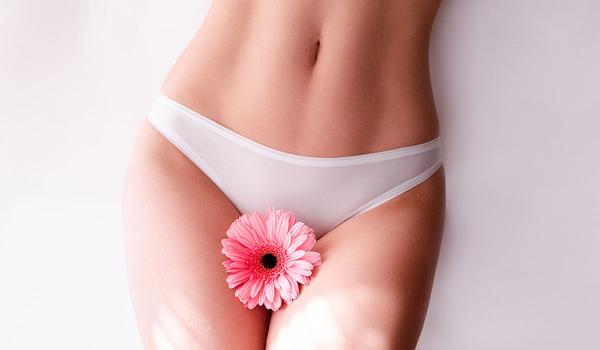13 things your vagina wants to tell you
Let's get to the point:
1. Stop confusing me with everything else down there
The number one mistake women make in the obstetrics office: they call everything a vagina. Here's the breakdown: Your vagina is the inner muscular tube that connects the cervix of the uterus to the vulva. The vulva is everything you see on the outside, including the labia majora and labia minora (outer and inner lips), the clitoris (the sensitive pleasure center at the top of the labia), and the urethra (where you urinate). ).
2. Your vaginal discharge is not that strange
Does it seem excessive? Don't feel gross. There is no "normal" amount of vaginal discharge; it can fluctuate depending on your menstrual cycle. Midway through the cycle, the discharge increases and is usually clear and stretchy (think egg whites). This facilitates the motility of sperm into the vagina, cervix, and uterus so that fertilization can occur. It lets you know that it is a fertile time of the month. Other times of the month, the discharge may be thicker and whiter.
Signs to be concerned about: Lumpy discharge, like cottage cheese, could indicate a yeast infection. Gray discharge with a fishy odor may indicate bacterial vaginosis (BV), an overgrowth of bacteria. Heavy discharge that is gray, yellow, or green could be a side effect of gonorrhea, a sexually transmitted infection (STI).
3. I'm not as strong as I used to be
Up to 40 percent of women have some form of pelvic organ prolapse (POP), in which the vaginal walls bulge into or through the vaginal opening. Unfortunately, many are too embarrassed to discuss this with their doctor. A woman with POP may notice a lump, pain with intercourse, vaginal pressure, bladder and bowel problems, and back or pelvic pain. Risk factors for POP include pregnancy, childbirth, aging, menopause, smoking, and trauma. Your doctor may prescribe exercises to strengthen your pelvic floor or a removable device to support areas of prolapse.
4. Please urinate after sex
The anatomical location of the fault: in women, the urethra, vagina and anus are in close proximity. Intercourse can cause anal bacteria to reach the bladder, where they can multiply and cause a urinary tract infection (UTI). It is different for men, who have a long distance from their anal area to their urethra due to the length of the penis. Think of the mechanics of thrusting during intercourse, bacteria can move. If you're prone to infections, urinate before and after sex to help cleanse the urethra of bacteria.
5. Rule out douching
Your vagina doesn't like it. Still, one in four women ages 15 to 44 douche in the United States. Not only can douching alter the natural pH of your vagina, increasing the risk of infection and irritation, but the area is clean enough without it. The vagina is not a dirty and horrible place that needs constant cleaning and vigorous scrubbing. Cleaning the vagina is like taking a shower anywhere else. Mild soap and water is generally recommended, no sponge, fragrances or water jets required to spray, thank you.
6. Kegel exercises are important, but not for everyone

Most people equate Kegels with something that's only useful during pregnancy and postpartum, but a strong, healthy pelvic floor has been shown to affect bladder, vaginal, and bowel function throughout life even in old age. Although many doctors suggest Kegel exercises for pregnancy-related incontinence, a review of studies published in the World Journal of Urology found that pelvic floor exercises can also prevent stress incontinence (urine leakage that occurs when you cough, sneeze or laugh) and pelvic organ prolapse. Contract your pelvic floor muscles as if you were stopping the flow of urine. Hold for three seconds, relax for three seconds, and repeat 10 to 12 times. Gradually work towards 10-second contractions daily.
However, some women who experience pain during intercourse or who need to go to the bathroom very often may have a pelvic floor that is too tight, rather than a weak one. In this case, strengthening the muscles can worsen the condition. If you suspect this is your situation, see your doctor, who may refer you to a pelvic floor physical therapist to help you relax your muscles.
7. Yes, you can smell "sex"
It is the scientific eau de parfum. Vaginal secretions are acidic (low pH). Semen is alkaline (high pH). When the two are combined, chemical reactions create new properties that can have distinct odors. The exact scent depends on your individual pH levels: things like douching or bubble baths can affect where your vagina stands on the pH scale. If you notice an unpleasant or fishy odor after sex, see your doctor, as this could be a sign of a bacterial imbalance in your vagina or an infection in your partner's semen.
@AnneFairweather @madhurjaffrey Will take a look, thank you. Trying to eat less meat but I only know how to cook vegetarian pasta dishes!
— Heidi Vella Thu Apr 23 21:35:08 +0000 2020
8. Do you skip the lube? you're missing it all
According to an Indiana University study, more than 65 percent of women have used lubricants to make sex more pleasurable or comfortable. Related research has found that women rate their lovemaking as substantially more enjoyable when using it compared to sex without lube. Keeping sex enjoyable is important as we age, because sex has the power to improve your mood, shrink your waistline, and even increase longevity. Although menopause is usually blamed for vaginal dryness, many other factors can affect it, including stress, jet lag, alcohol, birth control pills, and yes, prolonged love.
If you use lubrication, check its base. A water-based lubricant is a good choice to enhance pleasure and to use with condoms. Oil-based lubricants, such as edible coconut oil, may be preferred for oral sex, but they are not condom-friendly (they increase the risk of condom breakage). For a long-lasting lube, try one with a silicone base. If you're prone to infections, make sure it doesn't contain glycerin, which has sugars that can cause yeast in the vagina to multiply. Look for "fertility friendly" lubricants as if you are trying to conceive.
9. Stop making these tampon mistakes.
Sure, you wash your hands after inserting a tampon, but what about doing it before? Dirty hands can contaminate the tampon that is then left inside the vagina for four to eight hours. And never, ever use tampons if you're not having your period. If you insert one like this, it could alter the pH of your vagina and increase the chances of infection. Finally, never skip changing a tampon after a bowel movement. If you don't, anal bacteria can be transferred to the tampon string, which can then infect the urethra.
10. Cotton or command, please
Your vagina needs an occasional breath of fresh air. Dark, cramped, and humid environments can prevent aeration, promoting yeast or bacterial infections. Cotton underwear, commandos, or thong underwear with a cotton crotch are probably your best bets. Oftentimes, if someone is prone to infections, it's best for them to sleep without underwear to air out the area.
Clothing to Avoid: Spandex, wet bathing suits, dirty or wet gym clothes, and cotton crotchless socks.
11. Your menstrual cycle can be irregular
If your period is suddenly late, it's reasonable to suspect pregnancy, but if you've been abstinent or used birth control religiously, many other factors can interfere with the timeliness of your period. Stress can stop your period (the death of a family member or job loss, not daily hassles like commuting or deadlines). Scientists suspect the explanation is evolutionary: If you focus on survival, whether it's the threat of a lion or paying a mortgage, your body and brain may turn off reproductive hormones to avoid having children in a threatening environment. Too much exercise can also stop your period if your body perceives it as an extreme stressor.
Drinking could also have an effect. The National Institute on Alcohol Abuse and Alcoholism states that even drinking in amounts that don't harm your liver or other organs can cause irregular menstrual periods. Drinking can increase estrogen and testosterone levels, disrupting normal hormonal fluctuations. Other possible causes of abnormal periods: antidepressants or antipsychotics, shift work, low levels of body fat, rapid weight gain, a thyroid disorder, and smoking.
12. I'm a shapeshifter
Just like the rest of your body changes with age, your vagina experiences changes in shape and color. In your 20s, your vagina may become more visible, but it's the labia around it that are actually shrinking and thinning. Subcutaneous fat throughout the body decreases with age. In your 30s, hormonal changes caused by pregnancy or aging can cause the vaginal area to darken. At age 40, lower estrogen levels can change the pH balance of the vagina, stimulating inflammation and thinning and drying of the vaginal walls. (itching, redness and burning). A good way to keep your vagina healthy? Regular sexual intercourse.
Sex does not permanently stretch the vagina. Rather, the vagina loosens during arousal and tightens afterwards, regardless of how often a woman has intercourse. As for childbirth, young women (for example, in their early twenties) usually experience a complete vaginal readjustment. However, having many children can cause the vaginal muscles to fatigue and not fully contract. Aging has a similar effect, so some women may complain of looseness as they age, whether or not they've given birth. Women who have children in their 30s or 40s may experience looseness as a result of aging and motherhood at a later age. Kegel exercises can help tighten your muscles.
13. Let's get to know each other better
Make a date with your vagina. Use a mirror to familiarize yourself with its appearance, so you can better identify any sudden changes that warrant a trip to the doctor.
To perform a vaginal self-exam, take a small hand mirror with a long handle and a small flashlight. Wash your hands and sit on the floor, sofa or bed. Support your back with pillows and inspect the labia, clitoris, urethral opening, vaginal opening, and anus opening. See a doctor if you notice any problems, such as genital warts, sores, or foul-smelling vaginal discharge. @worldwide




